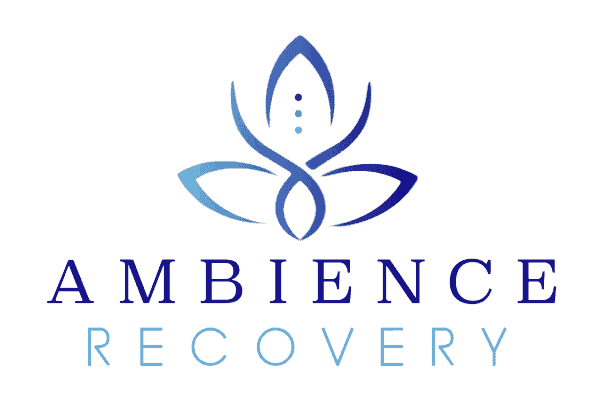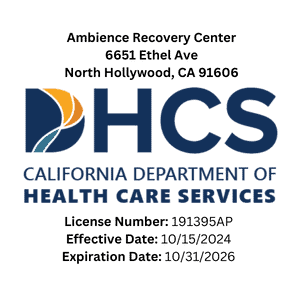Key Takeaways
- Addiction affects professionals and executives as much as any other group.
- The stigma surrounding addiction can prevent professionals from seeking the help they need.
- Customized treatment options and support groups are vital for recovery.
Introduction
Addiction is a disease that doesn’t discriminate. It affects people from all walks of life, including high-powered executives and professionals. The pressures of demanding careers, combined with easy access to substances like alcohol or prescription medications, often lead to substance use disorders among professionals.
Despite this, stigma and misconceptions about addiction frequently prevent professionals from seeking help. Many fear judgment, damage to their reputation, or even job loss. But addiction isn’t a moral failure—it’s a health condition that can be treated. This article explores the challenges professionals face, the impact of stigma, and the tailored treatment options available to support recovery.
Addiction Among Executives and Professionals
Executives and professionals are often seen as strong, capable, and in control. However, these high-pressure roles can make individuals more vulnerable to addiction.
Common Triggers for Substance Use Among Professionals:
- High Levels of Stress: Long hours, tight deadlines, and heavy responsibilities can lead professionals to turn to substances for temporary relief.
- Isolation: Many executives feel they can’t confide in others, increasing feelings of loneliness.
- Access to Resources: Professionals often have access to prescription drugs or alcohol through social settings or medical recommendations.
Substance use in professional environments is often hidden due to fear of judgment or the stigma associated with addiction. Many professionals continue to function in their roles, making it harder for others to recognize their struggles.
Understanding the Stigma of Addiction
What is Stigma?
Stigma refers to the negative attitudes and stereotypes toward individuals with substance use disorders. These misconceptions often paint addiction as a lack of willpower or a moral failing rather than a medical condition.
How Stigma Affects Professionals:
- Fear of being labeled as “weak” or “incompetent.”
- Reluctance to disclose struggles with substance use due to potential career consequences.
- Increased feelings of shame, guilt, and isolation can worsen addiction.
Examples of Stigmatizing Language:
- Terms like “junkie” or “addict” perpetuate harmful stereotypes.
- Using person-first language (e.g., “a person with substance use disorder”) helps focus on the individual, not their condition.
Breaking the Stigma Around Addiction in the Workplace
To support professionals in recovery, workplaces must play an active role in reducing stigma and encouraging open conversations.
Encouraging Open Conversations
- Educate employees about addiction as a health condition, not a character flaw.
- Create a safe and judgment-free environment where individuals can share their struggles.
Promoting Mental Health Resources
- Normalize Employee Assistance Programs (EAPs), which provide confidential counseling and support services.
- Offer workplace wellness programs that include addiction education and mental health support.
Leadership’s Role in Fighting Stigma
- Senior leaders can set the tone by sharing their recovery journeys or supporting mental health initiatives.
- Workplace policies should prioritize employee well-being over punishment, emphasizing support and recovery.
By fostering an understanding environment, workplaces can help professionals feel comfortable seeking the help they need.
Unique Challenges for Professionals Seeking Treatment
Professionals and executives often face additional barriers when seeking addiction treatment:
Fear of Judgment or Job Loss
- Many worry that admitting to addiction could harm their reputation or lead to career setbacks.
- This fear often delays or prevents them from seeking help.
Privacy Concerns
- Professionals may be hesitant to enter treatment programs due to concerns about confidentiality.
Balancing Treatment with Professional Obligations
- Taking time off for inpatient treatment can feel impossible for individuals with demanding careers.
Tailored Treatment Options for Professionals:
- Executive Rehab Programs: Provide private, flexible, and highly supportive environments where professionals can receive care while maintaining work responsibilities.
- Outpatient Programs: Allow individuals to continue working while attending therapy sessions on a flexible schedule.
- Telehealth Services: Enable remote access to counseling and recovery support, offering convenience and confidentiality.
The Importance of Recovery Support Groups for Professionals
Benefits of Peer Support
- Recovery support groups connect professionals with others who share similar struggles, reducing isolation and fostering a sense of community.
- Peer support groups encourage accountability, which can strengthen commitment to recovery.
Industry-Specific Support Groups
- Many industries offer recovery groups tailored to professionals, such as:
- Lawyers Concerned for Lawyers: A group specifically for legal professionals.
- Medical Professionals Recovery Programs: Designed for doctors, nurses, and other healthcare workers.
These groups address the unique challenges professionals face in recovery and provide a safe space for sharing experiences.
The Role of Education and Advocacy in Reducing Stigma
Education is key to breaking the cycle of stigma and encouraging more people to seek help.
Educating the Workplace and Public
- Provide training programs that explain addiction as a medical condition caused by brain changes, stress, or genetics.
- Highlight how addiction impacts mental health and physical well-being.
Promoting Advocacy Campaigns
- Public campaigns can reduce judgment by emphasizing that recovery is possible and treatment works.
- Sharing stories of professionals who have overcome addiction can inspire others to seek help.
By normalizing addiction recovery, workplaces and communities can create a culture of support and understanding.
Conclusion
Addiction is a disease that doesn’t discriminate, and professionals are not immune. The stigma surrounding addiction often prevents individuals in high-pressure careers from seeking the help they need. However, addiction is not a sign of weakness—it’s a health condition that can be treated.
Professionals can achieve recovery while maintaining their careers by fostering open conversations, providing tailored treatment options, and encouraging participation in support groups. If you or a loved one is struggling with addiction, help is available. Contact Ambience Recovery at 866-721-7470 to explore confidential treatment options and begin the journey to recovery.
FAQs
Is addiction common among professionals and executives?
Yes, addiction affects professionals and executives due to stress, access to substances, and demanding work environments.
Why is there a stigma surrounding addiction?
Stigma exists because of misconceptions that addiction is a moral failing rather than a health condition. This can prevent people from seeking help.
What treatment options are available for professionals with addiction?
Tailored options include executive luxury detox and residential inpatient treatment at Ambience Recovery.
How can workplaces reduce addiction stigma?
Workplaces can educate employees, promote mental health resources, and create policies emphasizing support and recovery rather than punishment.
Why are support groups important for professionals?
Support groups provide a safe space for individuals to connect with peers with similar challenges, reducing isolation and promoting accountability.
What is the relationship between opioid use and substance use disorder?
Opioid use can lead to substance use disorder, which is characterized by a compulsive pattern of drug use that interferes with daily life. It’s crucial to address opioid use and provide appropriate treatment to prevent further issues related to substance abuse.
How can we reduce the stigma toward people with addiction?
Reducing the stigma involves using supportive words when discussing substance use and recognizing that addiction is a medical condition. Open conversations about substance abuse can help create a more welcoming environment for patients with substance use disorder.
What role do health professionals play in supporting patients with substance abuse issues?
Health professionals are crucial in providing quality care and creating a space where patients feel welcome and cared for. They can also offer treatment for substance use and support patients in confronting their addiction challenges.
How can opioid use disorder save lives?
Treating opioid use disorder can save lives by reducing the risk of drug overdose deaths. Effective treatments, including medications for opioid use disorder, help patients manage their addiction and lead healthier lives.
What are effective ways to discuss substance use in a professional environment?
Using non-stigmatizing language and focusing on the health aspects of substance abuse are effective strategies. Discussing substance use openly can help normalize the conversation and encourage individuals to seek help.
Why is it important for patients with substance use disorder to feel welcomed?
When patients feel welcome and cared for, they are more likely to engage in treatment and adhere to recovery plans. A supportive environment can significantly improve outcomes for those struggling with drug and alcohol addiction.
What can organizations do to address the opioid crisis effectively?
Organizations can implement stigma reduction programs, provide education on substance use disorders, and ensure that resources for treatment are accessible to people who need them. This multi-faceted approach can help mitigate the impact of the opioid crisis.
How can overdose deaths related to substance abuse be prevented?
Preventing overdose deaths involves increasing awareness about drug misuse, providing access to treatment options for opioid use disorder, and distributing naloxone, a medication that can reverse opioid overdoses.
What resources are available for individuals struggling with drug use?
Numerous resources, including support groups, treatment centers, and hotlines, are available for individuals struggling with drug use. Organizations like the National Institute on Drug Abuse provide information and guidance on treatment options for substance use disorder.
Resources
https://nida.nih.gov/research-topics/stigma-discrimination
https://link.springer.com/chapter/10.1007/978-3-030-02580-9_7
https://www.nejm.org/doi/full/10.1056/NEJMp1917360
Katie is a Licensed Clinical Social Worker who has worked as a primary therapist, supervisor, and now clinical director for SUD/MH treatment centers for the past 12 years. Katie is trained in Brainspotting, EMDR, Internal Family Systems and Dialectical Behavior Therapy and is passionate about treating substance use disorders, trauma and grief.






